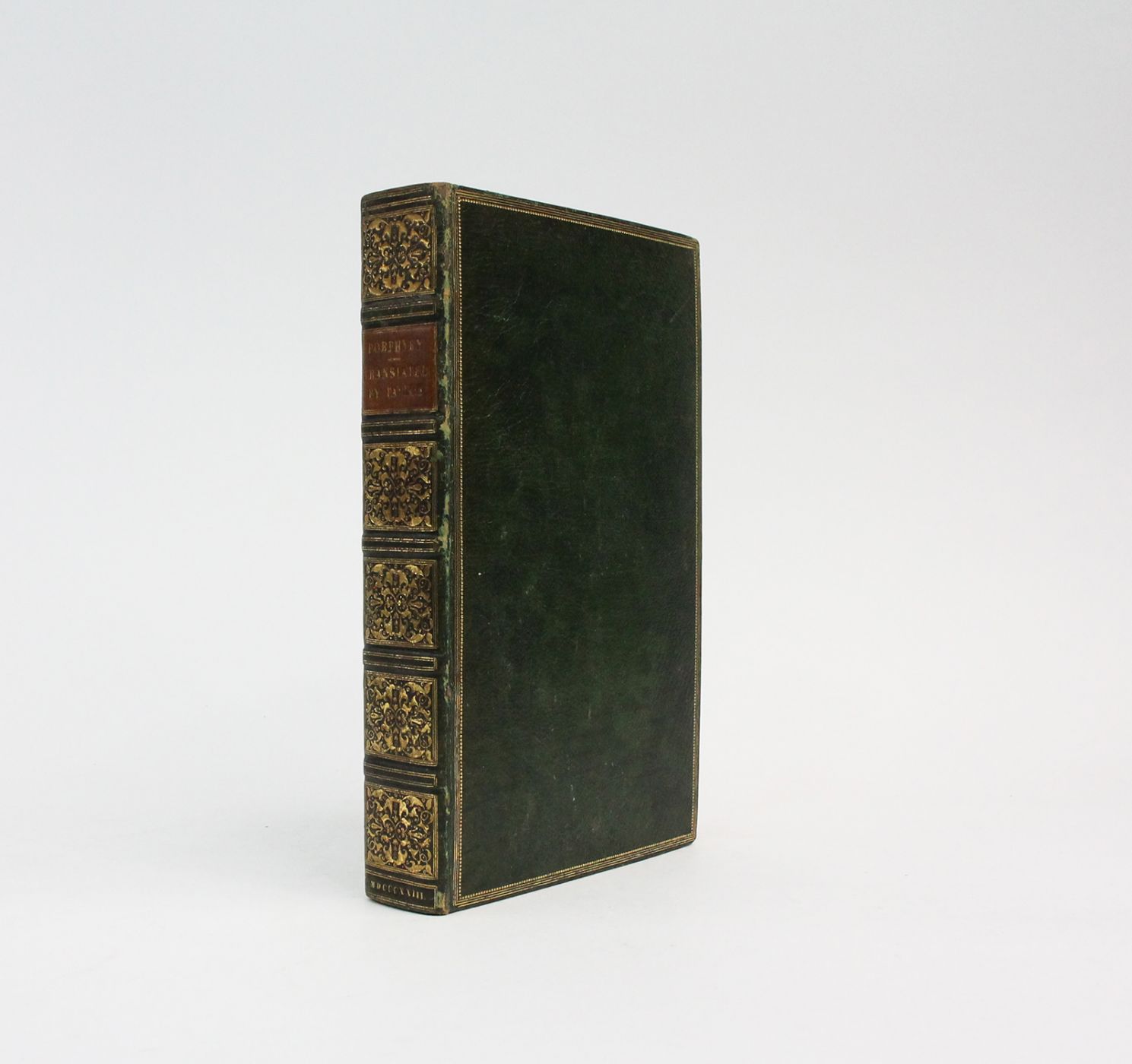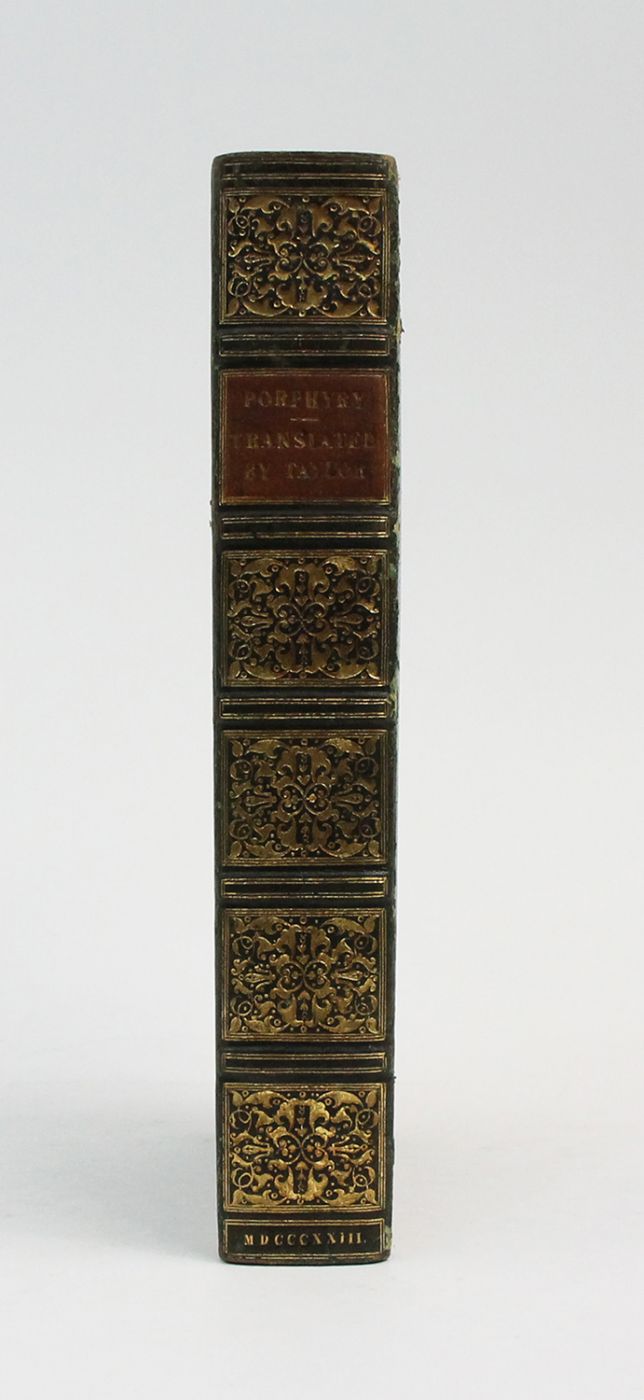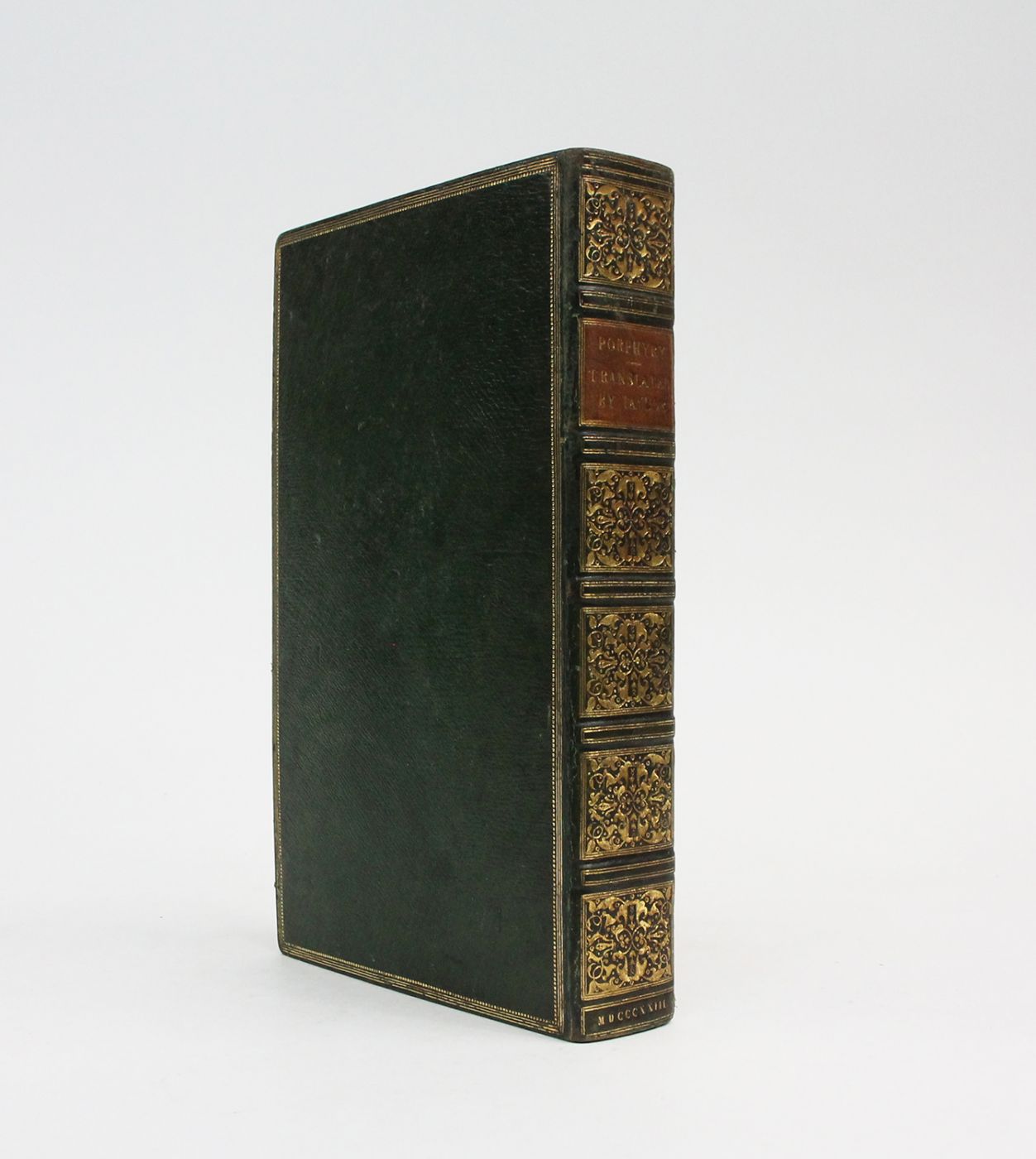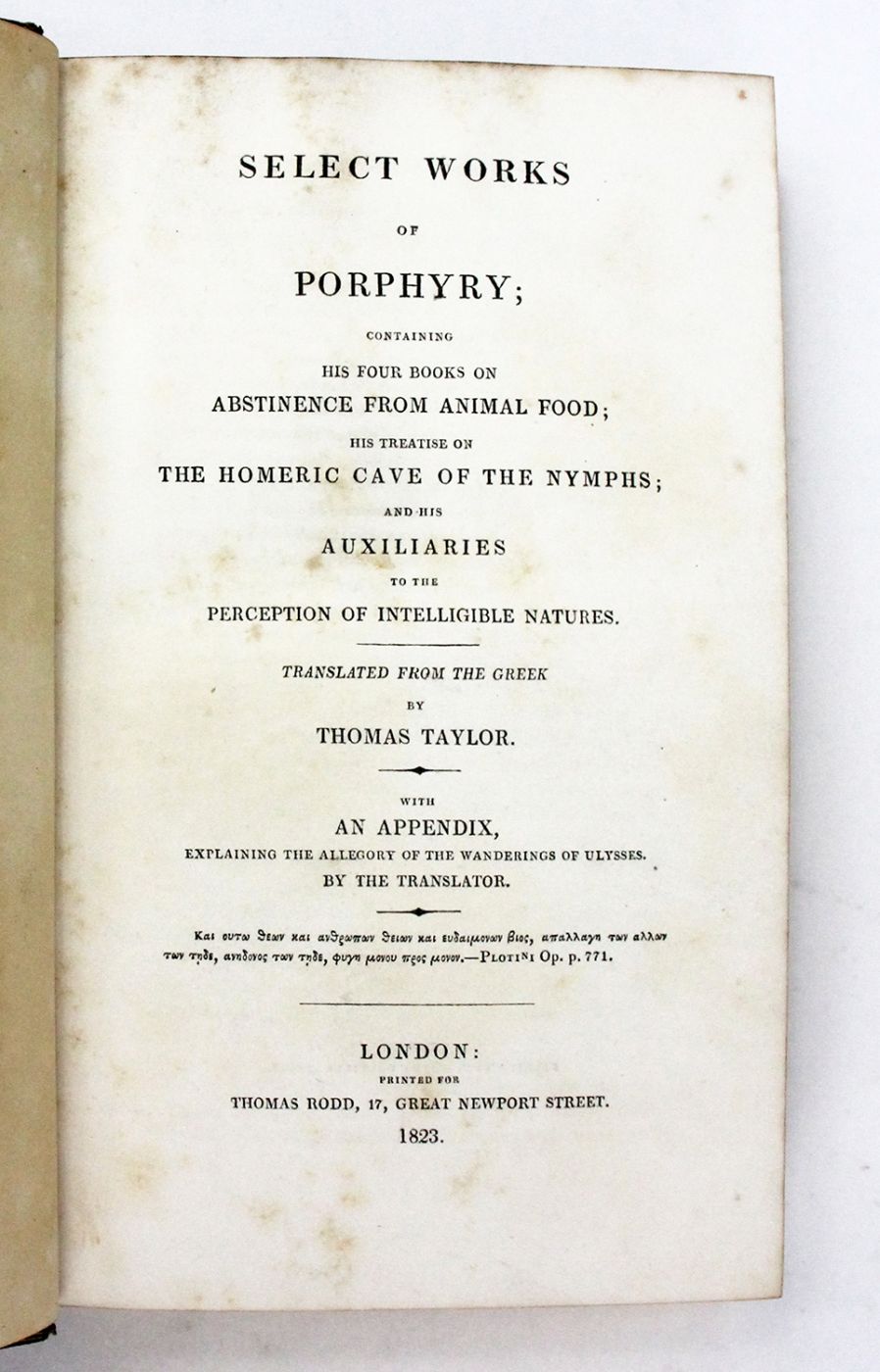SELECT WORKS OF PORPHYRY; Containing his Four Books on Abstinence from Animal Food; his Treatise on the Homeric Cave of the Nymphs; and his Auxiliaries to the Perception of Intelligible Natures. Translated from the Greek by Thomas Taylor. With an Appendix, explaining the allegory of the wanderings of Ulysses. By the translator.
First edition. Large 8vo. Handsomely bound by Charles Lewis in contemporary full green morocco. Boards ruled in gilt, the spine with five raised bands, compartments elaborately decorated in gilt, date in gilt to the foot of the spine, and red morocco label with titles in gilt. All edges gilt. Olive-green endpapers. Printed on thicker paper than usually encountered, possibly a large paper copy. Old pencil note to the front free endpaper "Bound by C. Lewis". A very good copy, the binding square, firm and bright with a little rubbing to the extremities. The contents with a nineteenth-century bookseller's ticket to the front pastedown, a small pen annotation to two page margins, underlining to three lines on one page, and some light scattered foxing to preliminary pages and page edges are otherwise in very good order. A most attractive copy.
A beautifully bound copy of the first English translation of Porphyry's 'On Abstinence from Animal Food' - one of the earliest extant works on vegetarianism. The philosophers Pythagoras (c.570-c.495 BC), Plutarch (46-after 119 AD) and Porphyry (c.234-c.305 AD) were the three most well-known vegetarian authors of classical antiquity. The vegetarian ideals of Pythagoras, the earliest of the three thinkers, were borne by a number of his followers down the centuries, with the phrase 'Pythagorean diet' coming to serve as the term most commonly used to describe vegetarianism, prior to the coining of the latter term in the early nineteenth century. Despite this lasting fame, his writings on the subject have not actually survived, leaving Plutarch's essays in his 'Moralia' and Porphyry's 'On Abstinence from Animal Food' as the foundational texts in the vegetarian canon. One of the most quoted and referenced works for virtually all subsequent vegetarian writers, Porphyry argues in his exposition that the killing of animals for either sacrifice or food is both unjust and unnecessary, as well as harmful to the purity and piety of the human individual. As he explains, by slaughtering animals for our own purposes "a barbarous and brutal nature becomes strengthened in us, which renders men insensible to the feeling of pity and compassion. Those who first perpetrated these iniquities fatally blunted the most important part of the (civilised) soul". This first English translation was produced by the neoplatonist Thomas Taylor (1758-1835), who was also the first to translate into English the complete works of Aristotle and of Plato, as well as the Orphic fragments. A great admirer of Hellenism, Taylor was an fervent critic of the corruptions of organised Christianity. He was also a frequently outspoken member of London's intellectual milieu, notably publishing a satire in reaction to Thomas Paine's 'Rights of Man' and Mary Wollstonecraft's 'A Vindication of the Rights of Women', titled 'A Vindication of the Rights of Brutes' (1792), which (sarcastically) suggested that if men and women should have rights, then why not also animals? Taylor's edition of Porphyry was significant in aiding the development of vegetarian thought in the nineteenth century (whether he intended it to or not), and his translations as a whole were influential for a number of leading figures in both British Romaniticism and American transcendentalism. Suitably bound in rich green morocco with olive-green endpapers by Charles Lewis, one of the greatest masters of the craft during the period, the present copy is perhaps one of the nicest examples one could find of this cornerstone of any library of vegetarian literature.
Stock code: 19610
£2,250
Published:
London: Thomas Rodd.
1823
Category
LiteratureNon-fiction
Bindings
Politics / Philosophy
Cookery / Food





